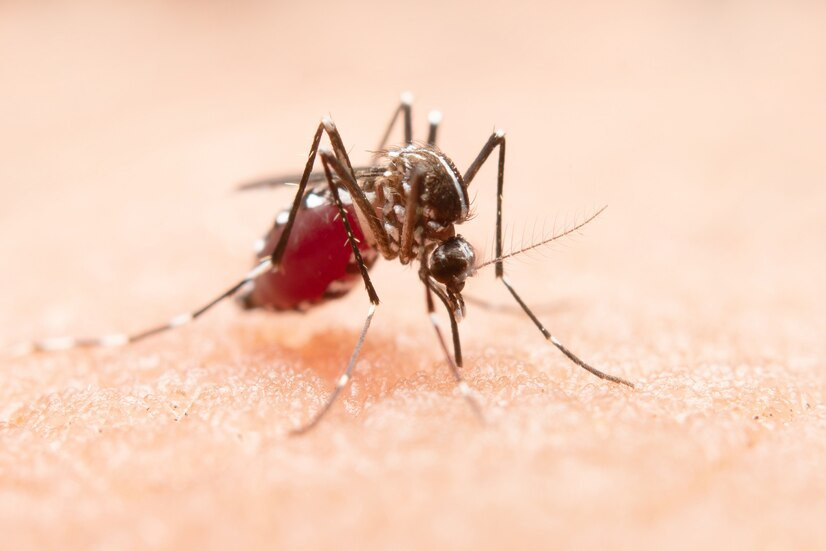HIV is a disease caused by a virus called the Human Immunodeficiency Virus. When it enters the body, the virus attacks the immune system, making the body vulnerable to infection.
HIV that is allowed to develop in the body can weaken the immune system by destroying T cells, eventually rendering the body incapable of fighting even mild diseases. In the final stage, HIV will progress into AIDS, so the immune system has been severely damaged.
Can HIV be transmitted via mosquito bites?
HIV is considered a highly contagious disease. HIV can even be transmitted by using the same syringe as someone who is HIV-infected. Does this indicate that HIV can be transmitted via mosquito bites?
In fact, mosquito bites cannot transmit HIV. Although a mosquito may have bitten an HIV-infected person and then bitten another person, the virus will not be transmitted.
HIV attaches to receptors on the surface of immune cells, infects them, replicates, and spreads. Mosquitoes (and other insects) lack the receptors that HIV uses to recognize immune cells, so they cannot spread HIV infection.
How HIV is transmitted?
If HIV cannot be transmitted via mosquitoes, how is it transmitted? HIV can be transmitted in several ways, including the following:
Transmission via direct contact with bodily fluids
HIV is primarily transmitted through direct contact with HIV-infected people's body fluids. Examples blood, sperm, vaginal fluid, breast milk, and anal fluid. These fluids can be transmitted through sexual intercourse without condom protection with an HIV-infected person.
It should be noted that HIV cannot be transmitted through kissing or saliva unless, when kissing an HIV-infected person and you have a wound in the oral cavity that allows the virus to enter through the hole.
Sharing needles
HIV can also be transmitted from HIV-infected individuals through the use of shared needles, such as drugs, piercings, and tattoo needles.
In rare cases, a person can also become infected with HIV when accidentally pricked with a needle that has been exposed to the blood of a person with HIV.
From mother to fetus
HIV can pass from mother to fetus in the womb, during childbirth, or through breastfeeding. The risk of transmission increases if the mother does not receive antiretroviral therapy.
When should you be aware of HIV?
You should be aware of HIV if you frequently change sexual partners, have sex with more than one person without using a condom, work in a laboratory, have piercings or tattoos, or share needles with HIV-positive people.
The initial symptoms of HIV infection will appear for approximately 2–4 weeks. The initial symptoms of HIV are similar to flu symptoms, so they are frequently misunderstood and underestimated.
Early symptoms of HIV that need to be watched out for include:
- Fever
- Chills
- Fatigue
- Sore throat
- Muscle pain
- Night sweats
- Reddish rash
- Swollen lymph nodes
- Mouth ulcers or sores in the mouth
If you are at high risk of HIV infection and exhibit any of the symptoms listed above, see a doctor and get tested for HIV.
If you need medical advice or consultation, you can either visit a doctor or make use of the consultation features that are available in the Ai Care application by downloading the Ai Care application from the App Store or Play Store.
Looking for more information about other diseases? Click here!
- Sean Edbert Lim, MBBS
Erica Hersh (2021). Why Mosquitoes Can’t Spread HIV and Which Viruses They Transmit. Available from: https://www.healthline.com/health/can-mosquitoes-transmit-hiv
Planned Parenthood. What is HIV/AIDS?. Available from: https://www.plannedparenthood.org/learn/stds-hiv-safer-sex/hiv-aids
Cleveland Clinic (2022). HIV & AIDS. Available from: https://my.clevelandclinic.org/health/diseases/4251-hiv-aids
Kara Mayer Robinson (2021). How Do You Catch HIV?. Available from: https://www.webmd.com/hiv-aids/how-catch-hiv
Mathieu Rees (2021). How long do the symptoms of HIV take to show?. Available from: https://www.medicalnewstoday.com/articles/how-long-does-it-take-to-show-symptoms-of-hiv











